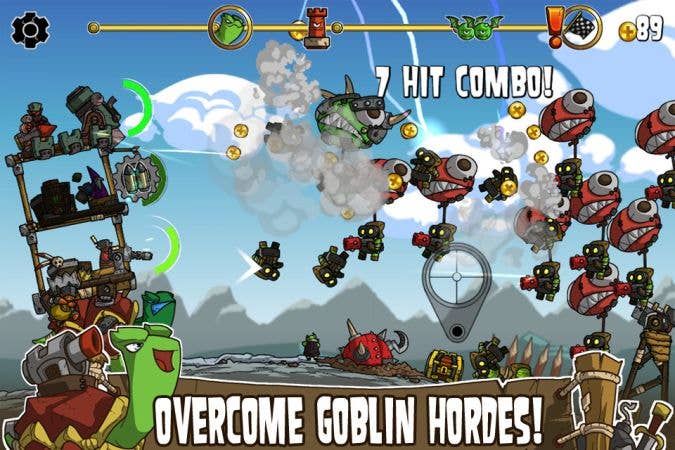How ethical design can be a money-maker
GDC 2013: Shellrazer designer describes the key to monetization and in-app purchases; it's all about respect for the players
The dark side of new business models like free-to-play (F2P) and in-app purchases (IAP) has been games that trick players into expenditures, or enrage them with demands for money, or just generally leave a bad impression. Designer Shane Neville from Ninja Robot Dinosaur Entertainment spoke at GDC 2013 about how it's possible to create a game that uses in-app purchases without annoying or tricking players.
Shane Neville is a game developer, artist, and pop-culture nerd who has been making games since 1997. He's worked on over 20 games, including Need For Speed: Porsche Unleashed, Company of Heroes: Opposing Fronts, and Shellrazer. Shellrazer has become the top paid game in some 30 countries, and is now available on Android as well as iOS. According to Neville, the game derives 30 percent of its revenue from in-app purchases, without creating negative reviews or comments.
Neville noted that Shellrazer is completely playable without any in-app purchases, and that reviewers regularly pointed out IAP was not required to play the game. "No review complained about coins," Neville pointed out. This is a victory in an environment where players are more than willing to write scathing reviews about games that feel a little too commercially inclined.
"Business models don't determine ethics; the developers do"
Shane Neville
Shellrazer is a multi-touch shooter based on weapons and screen management, with RPG elements. The core design loop from RPGs - fight, loot, and level up - is built into the design, and in fact Neville used the experience tables from D&D as the basis for his leveling up design. Neville simplified things by removing XP, using Coins for everything; players gain coins to use for leveling up and purchasing items.
The game was designed and balanced for three different types of players: players who have high skill, players who are willing to spend time, and players who are willing to spend money. Neville said the team designed the game for skill or time first, and made sure the game worked well for those players.
Designing for IAP alone is a slippery slope, Neville said. In many of the games he's seen, converting the player to IAP is the goal of the designer - it's how they pay the bills. "Business models don't determine ethics; the developers do," said Neville. "Dirty tricks work -- that's why companies use them. That means you think your players are fools, and that's disappointing to me." Neville wants to design games for decades to come, and he doesn't want to do that for an audience he holds in contempt.
How did the design team "keep their souls", according to Neville? "Respect for the player" is the key, Neville contends. The team never used the word "whale" to refer to players, and refused to think of the players as things to be monetized. The result has been a game where IAP accounts for a substantial part of the revenue without causing problems.

